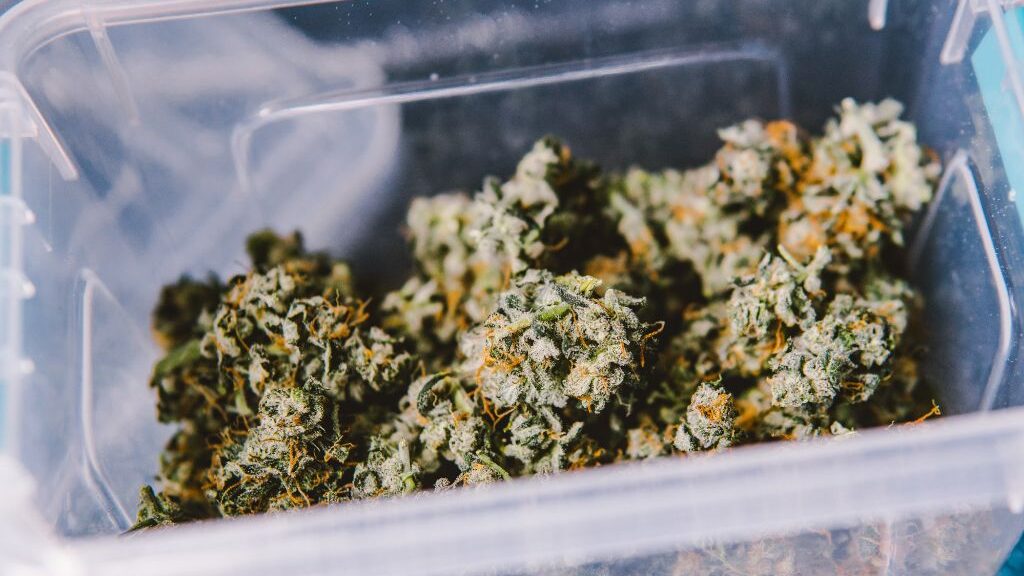THCa Flower for Wellness Balance
In recent years, the interest in cannabis and its derivatives has surged, with many individuals exploring its potential benefits for wellness. Among the various compounds found in cannabis, THCa (tetrahydrocannabinolic acid) has gained attention for its unique properties. Unlike THC, THCa is non-psychoactive, making it an appealing option for those seeking therapeutic effects without the high. This article delves into the potential of THCa flower for wellness balance.
Understanding THCa
THCa is a naturally occurring cannabinoid found in raw and live cannabis plants. It is the precursor to THC, the compound responsible for the psychoactive effects of cannabis. When cannabis is heated through smoking, vaping, or cooking, THCa is converted into THC through a process called decarboxylation. In its raw form, THCa does not produce a high, which makes it an attractive option for those interested in the therapeutic benefits of cannabis without the psychoactive effects.
Potential Health Benefits of THCa
Research into THCa is still in its early stages, but preliminary studies and anecdotal evidence suggest several potential health benefits:
- Anti-inflammatory Properties: THCa may help reduce inflammation, which is beneficial for conditions such as arthritis and other inflammatory diseases.
- Neuroprotective Effects: Some studies indicate that THCa might have neuroprotective properties, potentially aiding in the prevention of neurodegenerative diseases.
- Anti-emetic Effects: THCa has shown promise in reducing nausea and vomiting, which can be particularly helpful for patients undergoing chemotherapy.
- Appetite Stimulation: Like THC, THCa may help stimulate appetite, which can be beneficial for individuals with eating disorders or those undergoing treatments that affect appetite.
THCa Flower in Practice
Using THCa flower involves consuming the raw or minimally processed cannabis plant. This can be done through juicing, adding it to smoothies, or using it in salads. The key is to avoid heating the plant material to preserve the THCa content.
Case Studies and User Experiences
Several individuals have reported positive experiences with THCa flower for wellness balance. For instance, a case study involving a patient with chronic pain revealed significant relief after incorporating THCa into their regimen. Another user reported improved mood and reduced anxiety levels after regular consumption of THCa juice.
Scientific Research and Statistics
While comprehensive clinical trials are limited, existing research provides a foundation for understanding THCa’s potential. A study published in the British Journal of Pharmacology highlighted THCa’s anti-inflammatory properties, suggesting its potential in treating inflammatory conditions. Additionally, a survey conducted by a cannabis research group found that 70% of participants experienced reduced pain and inflammation after using THCa products.
Challenges and Considerations
Despite its potential, there are challenges associated with THCa use. The lack of extensive clinical trials means that much of the evidence is anecdotal. Additionally, the legal status of cannabis and its derivatives varies by region, which can affect accessibility.
- Legal Considerations: The legality of THCa products depends on local cannabis laws, which can vary significantly.
- Quality and Purity: Ensuring the quality and purity of THCa products is crucial, as contaminants can affect their safety and efficacy.
- Limited Research: More research is needed to fully understand the therapeutic potential and safety profile of THCa.
Conclusion
THCa flower presents a promising option for those seeking wellness balance through natural means. Its non-psychoactive nature and potential health benefits make it an attractive choice for many. While more research is needed to fully understand its effects, existing studies and user experiences suggest that THCa could play a valuable role in promoting health and well-being. As interest in cannabis continues to grow, THCa may become an increasingly important component of wellness strategies.

